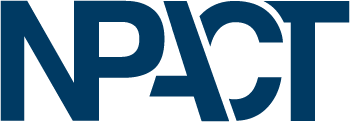EEOC Authorizes COVID-19 Testing Before Employees Enter the Workplace
Source: e-Risk Insurance Services
As employers contemplate reopening the workplace, coordinating concerns of workplace safety and compliance with the Americans with Disabilities Act (“ADA”) can be tricky. Of particular concern is whether employers can require an employee to submit to testing to determine whether she or he is infected with COVID-19 or whether doing so would constitute an unnecessary medical examination.
On April 23, 2020, the United States Equal Employment Opportunities Commission (“EEOC”) answered this question when it issued clear guidance permitting employers to administer a test to detect the presence of the COVID-19 virus before permitting employees to enter the workplace. The EEOC explained that because an individual with the virus poses a “direct threat” to the health or safety of others, such a test is consistent with the ADA standard for mandatory medical tests, which requires all such tests be “job related and consistent with business necessity.”
The EEOC noted that in performing any COVID-19 testing, employers must ensure the tests are “accurate and reliable.” The EEOC refers employers to guidance from the U.S. Food and Drug Administration (“FDA”), Center for Disease Control, or other recognized public health authorities to determine what may or may not be considered safe and accurate testing. For instance, the FDA has issued emergency use authorizations for certain in vitro diagnostics to detect and/or diagnose COVID-19, but at this time has not authorized any serology/blood tests for diagnosis or exclusion of COVID-19. Before choosing a test, employers should also consider the incidence of false-positives or false-negatives with that particular test.
In the event an employee does test positive for COVID-19, the Occupational Safety and Health Administration ("OSHA") recommends the following steps:
Of further note, documents and information employers obtain from employees relating to COVID-19, such as test results, a log of an employee’s daily temperature checks, or the employee’s statements regarding his or her medical condition, are considered confidential medical information and must be stored separately from the employee’s personnel file pursuant to the ADA. Results from an employee’s COVID-19 test fall under this category and should be stored in an employee’s new or existing medical file.
Employers should note accurate testing only reveals whether the virus is currently present. An employee may still acquire the virus after a negative test. As such, to the greatest extent possible, employers should continue to require employees to observe infection control practices (e.g., social distancing, regular handwashing, etc.) to prevent transmission of the virus.
Employers should also keep in mind that states may have laws that differ, or even conflict, from the EEOC’s guidance and should take care when instituting any mandatory testing regimen.
On April 23, 2020, the United States Equal Employment Opportunities Commission (“EEOC”) answered this question when it issued clear guidance permitting employers to administer a test to detect the presence of the COVID-19 virus before permitting employees to enter the workplace. The EEOC explained that because an individual with the virus poses a “direct threat” to the health or safety of others, such a test is consistent with the ADA standard for mandatory medical tests, which requires all such tests be “job related and consistent with business necessity.”
The EEOC noted that in performing any COVID-19 testing, employers must ensure the tests are “accurate and reliable.” The EEOC refers employers to guidance from the U.S. Food and Drug Administration (“FDA”), Center for Disease Control, or other recognized public health authorities to determine what may or may not be considered safe and accurate testing. For instance, the FDA has issued emergency use authorizations for certain in vitro diagnostics to detect and/or diagnose COVID-19, but at this time has not authorized any serology/blood tests for diagnosis or exclusion of COVID-19. Before choosing a test, employers should also consider the incidence of false-positives or false-negatives with that particular test.
In the event an employee does test positive for COVID-19, the Occupational Safety and Health Administration ("OSHA") recommends the following steps:
- Wherever feasible, immediately isolate individuals suspected of having COVID-19.
- Remove isolated individuals from the work site as soon as possible. Depending on the severity of the isolated individual's illness, he or she might be able to return home or seek medical care on his or her own, but some individuals may need emergency medical services.
- Conduct environmental cleaning and decontamination of infected areas.
Of further note, documents and information employers obtain from employees relating to COVID-19, such as test results, a log of an employee’s daily temperature checks, or the employee’s statements regarding his or her medical condition, are considered confidential medical information and must be stored separately from the employee’s personnel file pursuant to the ADA. Results from an employee’s COVID-19 test fall under this category and should be stored in an employee’s new or existing medical file.
Employers should note accurate testing only reveals whether the virus is currently present. An employee may still acquire the virus after a negative test. As such, to the greatest extent possible, employers should continue to require employees to observe infection control practices (e.g., social distancing, regular handwashing, etc.) to prevent transmission of the virus.
Employers should also keep in mind that states may have laws that differ, or even conflict, from the EEOC’s guidance and should take care when instituting any mandatory testing regimen.




